San Antonio is one of Texas’s oldest cities, shaped by centuries of conflict, culture, and community. The historical places in San Antonio hold stories that go far beyond their stone walls. From sacred missions to theatres that once welcomed legends, every site reflects a turning point in the city’s past. They capture the struggle for identity, the blend of civilisations, and the spirit of people who shaped Texas as we know it. Walking through them is crossing into another time, which is much alive in the present.
Top Historical Places In San Antonio To Explore
Step into the past through these remarkable landmarks, where San Antonio’s rich history continues to unfold in every stone, archway, and silent courtyard.
1. The Alamo
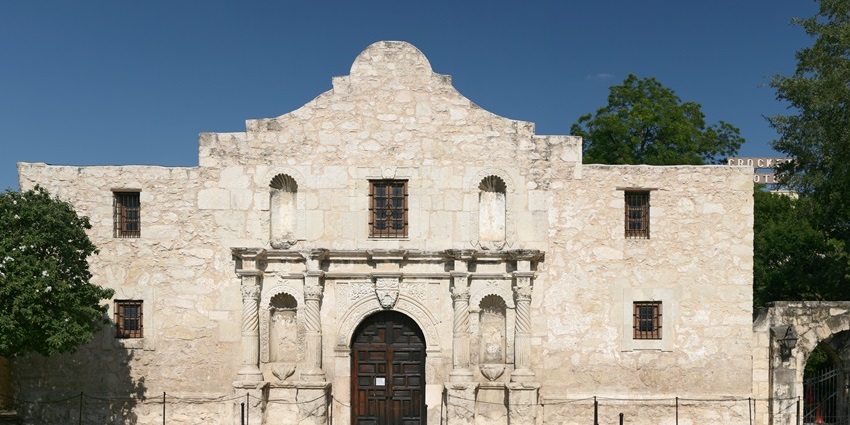
Photo: Daniel Schwen / Wikimedia Commons
Among all historical places in San Antonio, none is more deeply rooted in memory than the Alamo. Originally built in the 18th century as Mission San Antonio de Padua, it was intended to convert local indigenous communities. The structure that remains is not grand, but its walls have felt the weight of sacrifice and stubborn courage. Today, visitors can walk through the chapel, see preserved barracks, and view artefacts that speak of resistance and resilience.
Location: Located at 300 Alamo Plaza in downtown
Timings: 9 AM – 5:30 PM
Nearby Attractions: River Walk, Menger Hotel, Ripley’s Believe It or Not!
2. San Fernando Cathedral
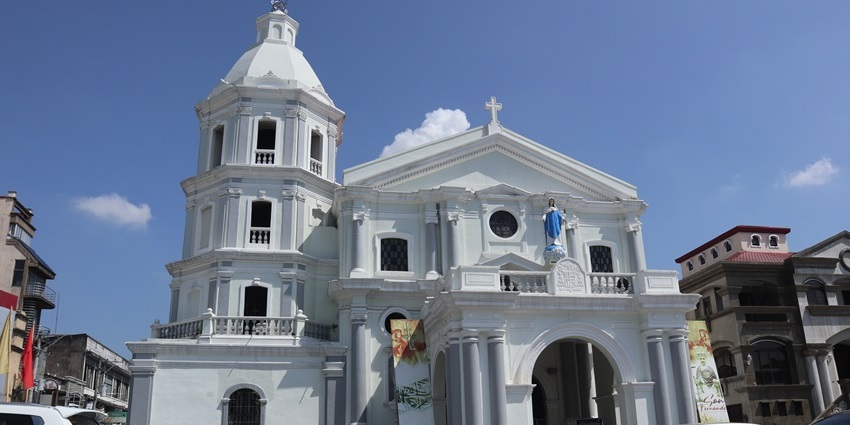
Photo: Patrickroque01 / Wikimedia Commons
One of the oldest continuously active churches in the United States, San Fernando Cathedral anchors the heart of the city’s spiritual and civic life. In the early 18th century, it was built by settlers from the Canary Islands and has witnessed royal proclamations, military processions, and candlelit vigils. Among the most striking historical places in San Antonio, it holds the remains of heroes from the Battle of the Alamo, resting quietly in a marble tomb near the altar.
Timings: 6:30 AM – 6 PM
Nearby Attractions: Spanish Governor’s Palace, Bexar County Courthouse, Main Plaza
3. Mission San José
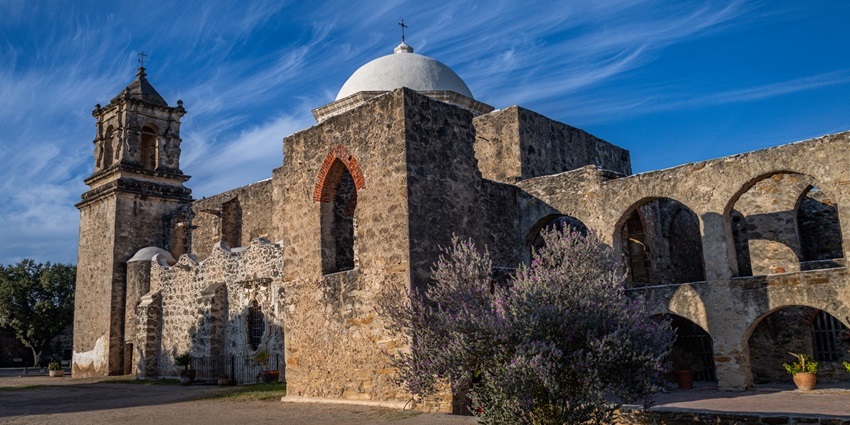
Photo: Ligocsicnarf89 / Wikimedia Commons
Known as the “Queen of the Missions,” Mission San José is the largest and most fully restored of the five colonial missions that form the San Antonio Missions National Historical Park. This mission was built by Spanish friars in 1720 for worship, survival, offering sanctuary, farming, and education to displaced Coahuiltecan people. The rose window, a Baroque-style stone carving found on the south wall of the church, remains one of the mission’s most admired features.
Location: 6701 San José Drive
Timings: 9 AM – 5 PM
Nearby Attractions: Mission San Juan, Mission Trail, Yanaguana Garden
4. The Spanish Governor’s Palace
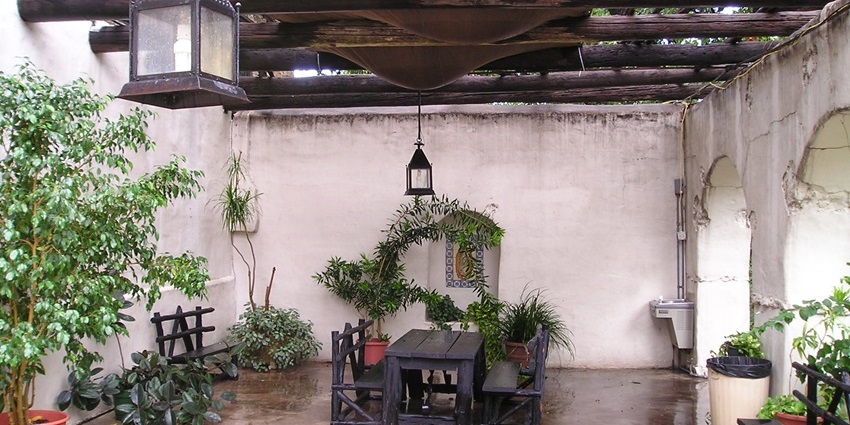
Photo: Lutz Fischer-Lamprecht / Wikimedia Commons
Just steps away from Main Plaza, the Spanish Governor’s Palace stands behind thick wooden doors that lead into an unexpectedly quiet world. Built in the early 1700s, this adobe home once belonged to the military commander of Presidio San Antonio de Béxar. As the only remaining Spanish Colonial townhouse in Texas, it now serves as a rare architectural record of that period. The thick, whitewashed walls, carved doors, and wooden ceilings reflect a style brought from Spain and adapted for the Texas heat.
Location: 105 Plaza De Armas
Cost: $5 / ₹450 for adults & $3 / ₹250 for children
Timings: 9 AM to 5 PM (Tuesday – Saturday) & 10 AM – 5 PM (Sunday)
Nearby Attractions: San Fernando Cathedral, Casa de Armas, Plaza de Las Islas
5. Mission Concepción
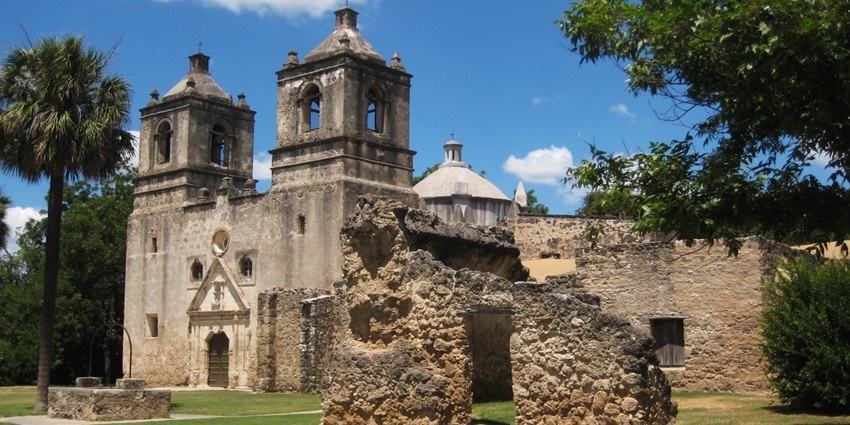
Photo: Liveon001 / Wikimedia Commons
Mission Concepción has stood untouched by time longer than any other stone church in the United States. Completed in 1755, it still looks much the same today as it did centuries ago. The mission was part of a grand effort by Spanish Franciscan friars to convert and settle native populations in South Texas. Out of all historical places in San Antonio, this one carries the rare distinction of remaining almost fully intact with walls, frescoes.
Location: 807 Mission Road
Timings: 9 AM – 5 PM
Nearby Attractions: Roosevelt Park, River Walk South Reach, Mission San José
6. King William Historic District
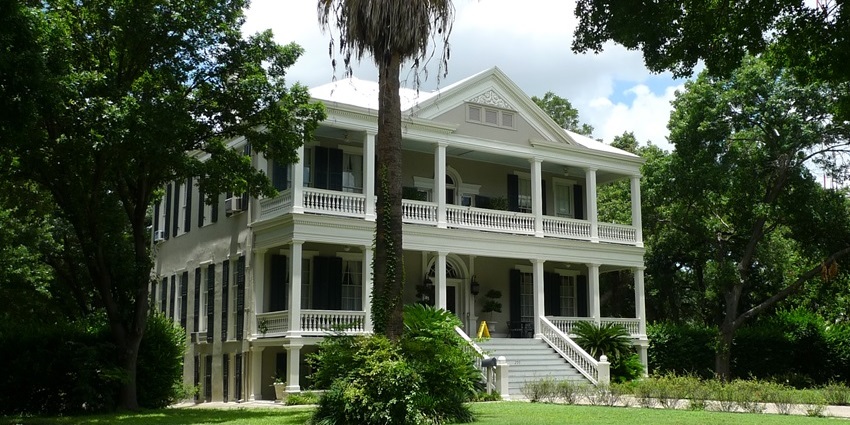
Photo: Tony Kent / Wikimedia Commons
South of downtown, the King William Historic District stretches along the banks of the San Antonio River, where 19th-century German immigrants built grand homes shaded by pecan and cypress trees. What began as farmland evolved into one of the city’s most elegant neighbourhoods. It remains one of the most atmospheric historical places in San Antonio, which offers a window into the lives of merchants and settlers who helped shape the city’s economic rise.
Nearby Attractions: Guenther House, Blue Star Arts Complex, San Antonio Art League Museum.
7. The Guenther House
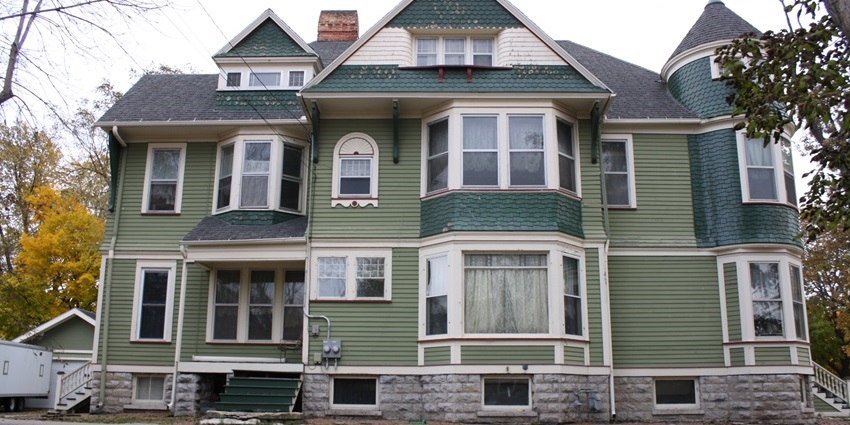
Photo: Royalbroil / Wikimedia Commons
Walk along the river in the King William District and you’ll come across a graceful home with a rich past. Built in 1859 by Carl Hilmar Guenther, the founder of Pioneer Flour Mills, this house became a part of San Antonio’s early identity. Guenther wasn’t just building a family home; he was anchoring a future in flour, trade, and community. The house still stands, quietly holding onto those beginnings, and remains one of the most deeply rooted historical places in San Antonio. The dining area downstairs serves dishes based on original family recipes.
Location: 205 E Guenther Street
Timings: 8 AM – 2 PM (Tuesday – Sunday)
Nearby Attractions: King William District, San Antonio River, Blue Star Arts Complex
8. Mission Espada
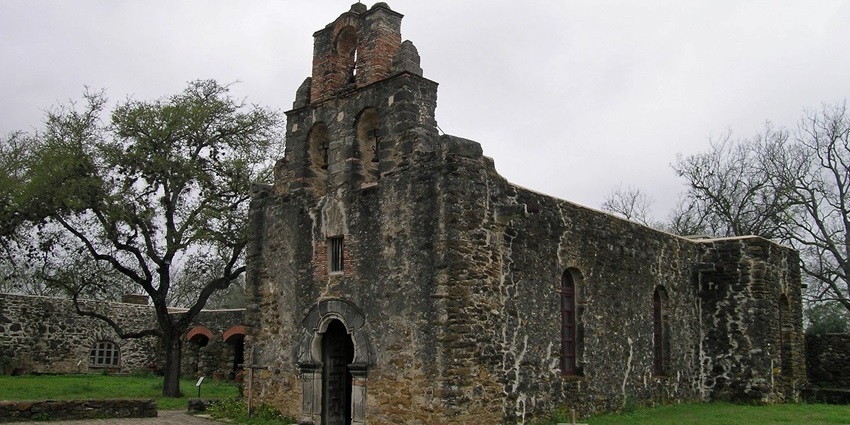
Photo: National Park Service / Wikimedia Commons
Further south along the Mission Trail lies Mission Espada, the oldest of the five Spanish missions in San Antonio. It was established in 1690 in East Texas and later relocated to its current site in 1731. The mission was created to convert and settle local native communities, and over time, it became a thriving centre of agriculture and faith. Its stone chapel, with weathered walls and a modest bell tower, speaks through its silence. Walking through the grounds, you’ll find old workshops, arched doorways, and the original granary.
Location: 10040 Espada Road
Timings: 9 AM – 5 PM
Nearby Attractions: Espada Aqueduct, Acequia Park, Mission San Juan
9. Mission San Juan Capistrano
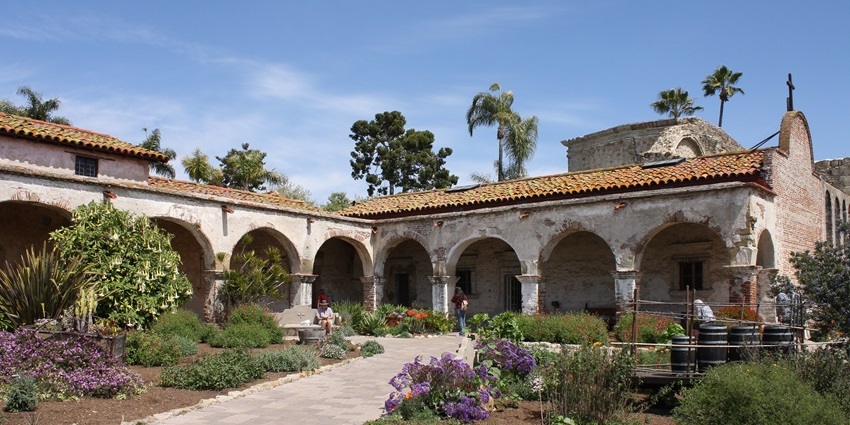
Photo: Bernard Gagnon / Wikimedia Commons
Mission San Juan Capistrano, originally founded in East Texas in 1716, moved to the banks of the San Antonio River in 1731. It began as a religious outpost and quickly grew into a centre for farming, craftsmanship, and community life. Compared to the other missions, its simple design and whitewashed chapel reflect a quiet grace. Among the historical places in San Antonio, this one holds onto a sense of humility and daily routine that once defined mission life. It is set among wide fields and shaded paths that were once filled with fruit trees, crops, and grazing livestock.
Location: 9101 Graf Road
Timings: 9 AM – 5 PM
Nearby Attractions: Padre Park, Espada Aqueduct, Mission Espada
10. Majestic Theatre
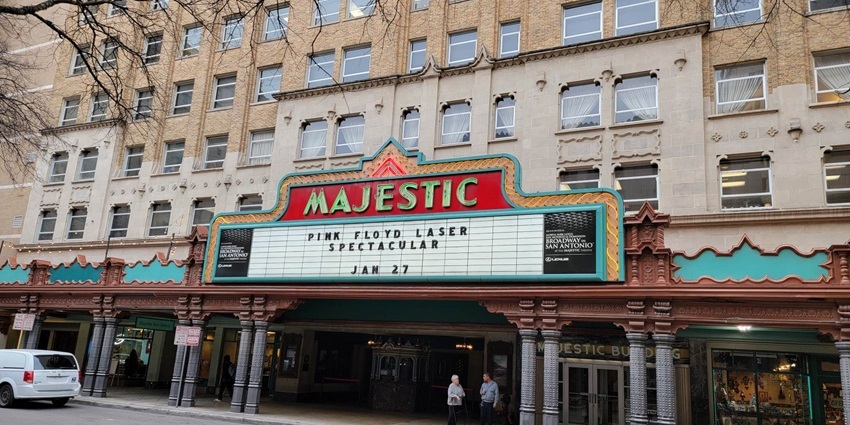
Photo: NVCStudent2021 / Wikimedia Commons
Opened in 1929, the Majestic Theatre was once the largest in Texas and one of the first in the state to be air-conditioned. Located on East Houston Street, it became a glamorous stage for concerts, films, and live performances during a time when going to the theatre was a full evening affair. The ceiling is painted as a night sky, complete with twinkling stars and drifting clouds, creating the illusion of being outdoors. The architecture is a mix of Mediterranean, Baroque, and Moorish details in bold colours and carved reliefs.
Location: 224 E Houston Street
Nearby Attractions: Buckhorn Saloon, Texas Ranger Museum, Travis Park
The historical places in San Antonio are living parts of the city’s identity. Whether a humble mission or a lavish theatre, each site holds its voice in the larger story of Texas. Through centuries of change, these places have remained to offer insight into the people, struggles, and cultures that shaped San Antonio. Book your trip with TripXL and experience the most authentic side of San Antonio, where every corner has a story waiting to be discovered.
Cover Photo: NPS / Wikimedia Commons


 WhatsApp
WhatsApp
 Twitter
Twitter









